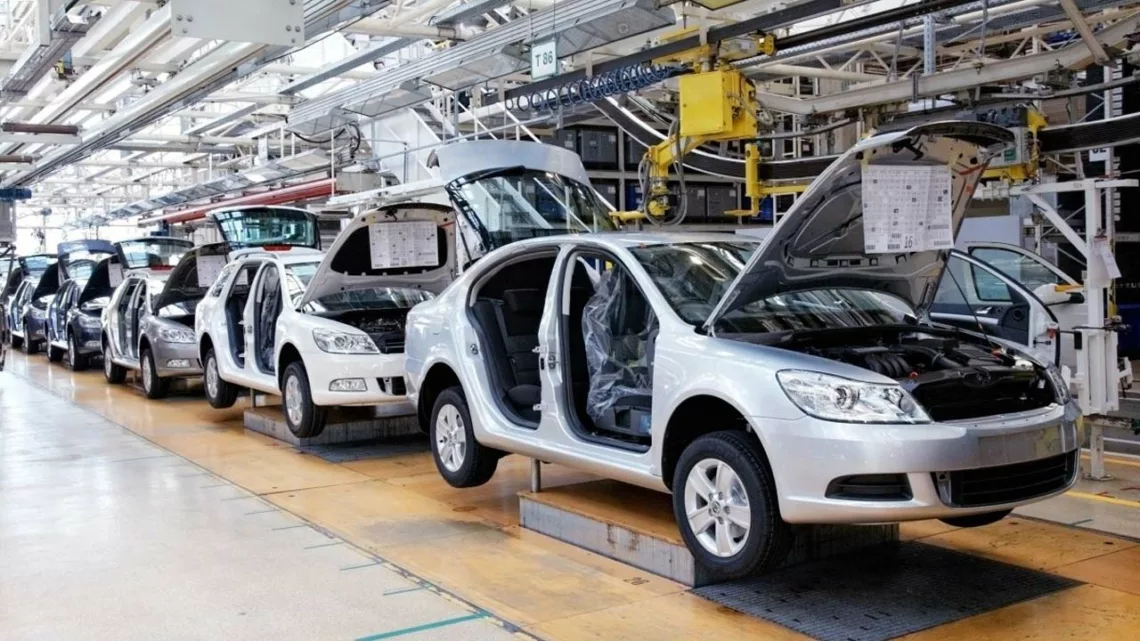Nigeria’s automotive industry is at a crossroads, with a new auto policy set to redefine its future. But over the years, there has been a plethora of promises from the government to turn around the fortunes of the auto industry. But the government’s promises have been backed by insufficient action.
The recently approved Nigeria Automotive Policy 2023-2033, as articulated by the then director-general of the National Automotive Design and Development Council (NADDC), Mr. Jelani Aliyu, aims to create a better operating environment for the nation’s auto industry and promote its growth. However, the challenges the sector faces, including smuggling, insufficient local production, and policy inconsistency, make the journey ahead uncertain.
The erstwhile director-general of NADDC, Mr. Jelani Aliyu, had expressed optimism that the newly approved auto policy will provide a legal framework for the development of a competitive and sustainable automotive industry in Nigeria. The policy’s objectives include creating an environment that allows existing assembly plants to survive, grow, and attract original equipment manufacturers (OEMs) and local content suppliers. The policy also aims to facilitate the transfer of technical know-how and technological skills for the development of the automotive industry and position Nigeria as a leading center for automotive production in Africa.
This new policy comes after earlier attempts to revitalise the sector through the National Automotive Industry Development Plan (NAIDP) in 2014, which led to the establishment of numerous assembly plants. However, challenges, such as forex issues, infrastructure gaps, and capacity limitations, have hampered the sector’s growth, leading some automakers to set up assembly plants in nearby Ghana.
Nigeria’s dependence on vehicle imports remains a significant challenge for the nation. The lack of a robust local manufacturing industry means the country heavily relies on imports to meet its transportation needs. According to data from the National Bureau of Statistics (2018), there were approximately 11.8 million vehicles in Nigeria, and 39 per cent were privately owned, 56 per cent were commercial vehicles, 1.1 per cent were government vehicles, and 0.4 per cent were owned by diplomats. These figures demonstrate the country’s reliance on imported vehicles.
The cost of importing vehicles into Nigeria is substantial. The country’s annual vehicle demand is approximately 720,000 units, but local production can only supply around 14,000 units. As a result, Nigeria spends an estimated $8 billion each year on imported vehicles. Importation, primarily of used vehicles, continues to fill the supply shortfall. The absence of affordable locally produced vehicles has led to a continued reliance on imported used cars, with N1.8 trillion spent on these imports over six years.
However, the removal of Jelani Aliyu, may pose some obstacles to the progress of the policy. Jelani, in the eyes of many industry stakeholders, was a right fit for the job. His pedigree puts him in favourable light with industry stakeholders.
He is an automotive designer who worked for the American car company General Motors. He was a senior creative designer at GM until his appointment as the director-general of the National Automotive Design and Development Council (NADDC) in 2017 by Nigerian President Muhammadu Buhari.
While studying in the United States, Aliyu won two prestigious awards from Ford Motor Company and Michelin. In 1994, Aliyu got his qualification in automotive design and immediately joined the General Motors team, where he started his design career.
In 1994 after graduating from the College for Creative Studies, Aliyu joined General Motors. At General Motors Aliyu was the co-designer of the Oldsmobile Bravada, Buick Rendezvous and the Opel Astra and was the lead exterior designer for the Pontiac G6 and the Chevrolet Volt, a hybrid electric vehicle with a sleek arcing roofline.
Commenting, a mechanical engineer, Amos Ashafa, told NATIONAL ECONOMY that Jelani Aliyu, had come a long way with the NADDC, and was in the best position to drive the local auto industry to viability. He stated that the former DG was a technocrat who had driven the Council to this level of success and, hence, should have been left to drive it.
Despite the many challenges, the potential for Nigeria’s auto industry remains promising. The recently-approved auto policy seeks to address some of the sector’s issues and encourage investment through fiscal incentives, including tax relief for assemblers, manufacturers of automotive components, and electric vehicles.
Simon Kemakolam, a former engineer who worked at Dunlop Nigeria, acquiesced. He said if the environment in Nigeria was this friendly to the auto industry, Nigeria would not have lost much-needed foreign investments to neighbouring countries such as Ghana.
However, there are hurdles to overcome, said an economist, Dr. Ben Atuma. He said the lack of infrastructure, reliable electricity, and policy consistency has hindered the industry’s growth. “Smuggling of used vehicles across the borders further threatens the local industry. Additionally, the inability of assembly plants to access foreign exchange has led to increased vehicle prices and reduced consumer demand. These challenges must be addressed for the industry to realise its potential,” he said.
A lecturer at Auchi Polytechnic, Zakari Mohamed, noted that the path forward for Nigeria’s auto industry involves creating an enabling environment, providing incentives for investors, and building capacity for components. “Encouraging auxiliary industries and ensuring local component manufacturing is essential for the sector’s success. Moreover, addressing gaps in vehicle repair and maintenance, along with an efficient vehicle distribution system, is critical,” he stated.
Atuma added that Nigeria’s auto industry holds great potential for both economic growth and job creation. “The newly- approved auto policy signals the government’s commitment to fostering a competitive and sustainable automotive industry. However, overcoming challenges such as infrastructure gaps, smuggling, and policy inconsistency will be key to realising this potential and establishing Nigeria as a hub for automotive production in Africa. The future of the Nigerian auto industry is at a critical juncture, and decisive actions are needed to steer it in the right direction,”he stated.





